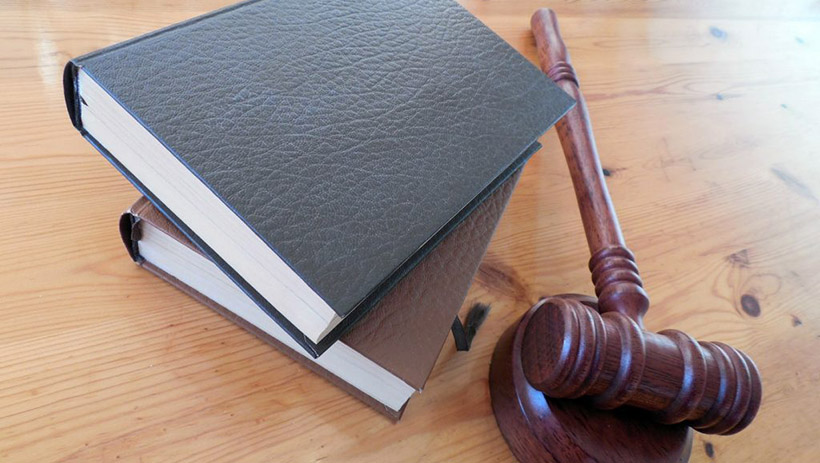Publisher's Note: This post appears here courtesy of the
Carolina Journal. The author of this post is
Mitch Kokai.

In the final story of North Carolina's 2020 election, U.S. District Judge James Dever's name might end up securing only a footnote.
That would be a shame. Dever's
recent ruling in a pair of election-related lawsuits deserves praise.
Dever stepped in, blocked an action from state government officials that appeared unconstitutional, then stepped back — deferring to a colleague who had spent much more time studying the issues at hand. It's an admirable example. Dever applied judicial power judiciously.
Though multiple lawsuits have flowed through North Carolina's state and federal courts since the COVID-19 pandemic arrived early this year, Dever had avoided most of the action. By the time he held his first status conference Sept. 28 in the case dubbed Moore v. Circosta, the drama linked to state election disputes had entered at least the third act.
Litigants called on Dever to address a dispute based on the N.C. State Board of Elections' approach toward absentee ballots. The state board, dominated by Democrats, working along with attorneys representing Democratic state Attorney General Josh Stein, had reached a settlement with Democratic and left-of-center activist plaintiffs in a lawsuit filed in state court.
As part of that settlement, the elections board put forward a series of memorandums spelling out several election rule changes. Among them: Absentee ballots would not be thrown out if they arrived in packets lacking a witness's signature. Local elections officers would be forced to count all ballots deposited in unstaffed drop boxes. Elections staff would count all ballots arriving by mail as late as Nov. 12, nine days after Election Day.
Each of those proposals directly contradicts state elections law.
The controversial election memorandums headed to a state court Sept. 22. Four days later, Republican legislative leaders, two voters who already had cast general-election ballots by mail, and a GOP congressional candidate filed the joint Moore v. Circosta federal suit. A second suit with similar complaints — Wise v. North Carolina State Board of Elections — linked N.C. voters as plaintiffs with President Trump's campaign and national Republican officials.
Both suits ended up in Dever's courtroom. He heard arguments in the cases Oct. 2, hours after a state court accepted the controversial settlement that produced the disputed memorandums.
"The court finds plaintiffs' arguments concerning the Equal Protection Clause persuasive," Dever announced in a 20-page order issued the following day.
Specifically, the 14th Amendment's "equal protection" clause affects election laws and policies in two ways. First, the state cannot take steps that lead to
"a debasement or dilution of the weight of a citizen's vote." Second, the state cannot enact laws or rules that lead to the
"arbitrary or disparate treatment of members of [the state's] electorate," Dever wrote.
"Plaintiff voters' claims under the Equal Protection Clause raise profound questions concerning arbitrariness and vote dilution," Dever concluded. When the election started with the mailing of absentee ballots Sept. 4, one set of rules existed for all voters. When a state judge accepted the controversial lawsuit settlement nearly a month later, the rules changed.
"[A]fter the election started and 319,209 North Carolina voters had cast absentee ballots, the [state elections board] materially changed the rules under which the election was taking place," Dever determined.
"At bottom, the [state board] has ignored the statutory scheme and arbitrarily created multiple, disparate regimes under which North Carolina voters cast absentee ballots, and plantiff voters in this case ... are likely to succeed on their claims," Dever explained.
The judge ruled that the elections board had
"inequitably and materially upset the electoral status quo in the middle of an election." Dever issued a restraining order. It blocked the lawsuit settlement's rule changes from taking effect, "to maintain the status quo." He chided elections officials for undermining public confidence in the integrity of the electoral process. Dever accused officials of creating confusion for voters who had not yet cast ballots.
The legal reasoning appears sound. But this column is designed to highlight another aspect of Dever's ruling.
Given the judge's pointed criticism of state elections officials, an observer might have expected Dever to extend his temporary restraining order through the end of the election. Some of my right-of-center friends in the political and public policy communities had hoped for such an outcome.
Instead Dever's order was designed to last less than two weeks — through Oct. 16. In the meantime, he transferred the Moore and Wise cases to another U.S. District Court judge, Greensboro-based William Osteen.
Why? Osteen had been dealing with similar election-related issues for four months before Dever entered the picture. Osteen had held a full two-day evidentiary hearing and issued a 188-page order in August. A significant portion of that order related to rules surrounding absentee ballots.
Osteen already had planned another election-related hearing. It was scheduled four days after Dever's order. The Greensboro-based judge aimed to address his own concerns about the state elections board's actions.
"Allowing Judge Osteen to consider these actions together (even if not consolidated) constitutes 'sound judicial administration' and avoids 'wasteful expenditure of energy' and confusion," Dever wrote.
"It also allows expeditious resolution of requests for injunctive relief and avoids multiple federal courts imposing potentially conflicting preliminary or permanent injunctions concerning this election."
Dever stepped in, took decisive action, then stepped away. For that, he deserves more than just a footnote in the 2020 election story.
Mitch Kokai is senior political analyst for the John Locke Foundation.

